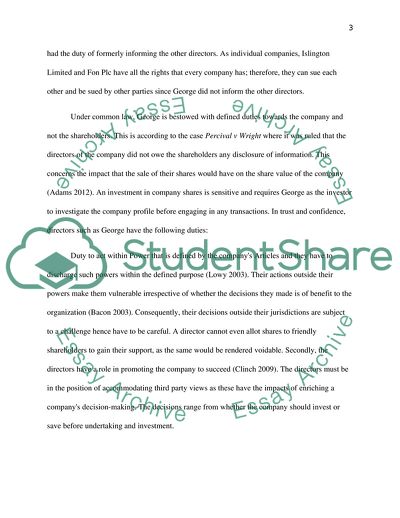Cite this document
(Description of Directors Duties Case Study Example | Topics and Well Written Essays - 1500 words, n.d.)
Description of Directors Duties Case Study Example | Topics and Well Written Essays - 1500 words. https://studentshare.org/law/1851643-directors-duties
Description of Directors Duties Case Study Example | Topics and Well Written Essays - 1500 words. https://studentshare.org/law/1851643-directors-duties
(Description of Directors Duties Case Study Example | Topics and Well Written Essays - 1500 Words)
Description of Directors Duties Case Study Example | Topics and Well Written Essays - 1500 Words. https://studentshare.org/law/1851643-directors-duties.
Description of Directors Duties Case Study Example | Topics and Well Written Essays - 1500 Words. https://studentshare.org/law/1851643-directors-duties.
“Description of Directors Duties Case Study Example | Topics and Well Written Essays - 1500 Words”. https://studentshare.org/law/1851643-directors-duties.


